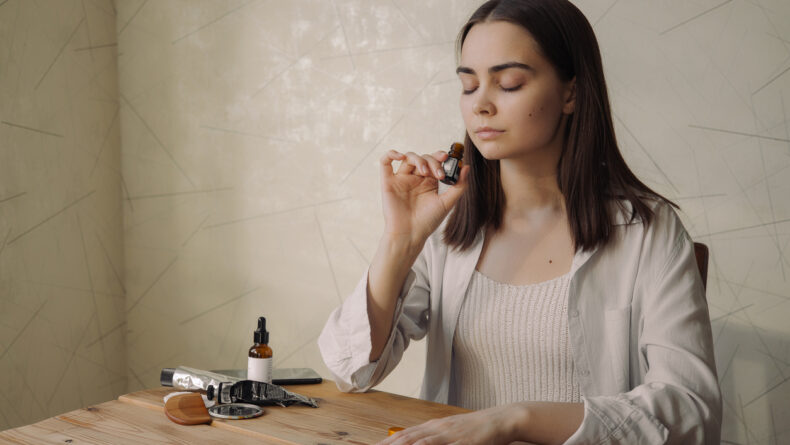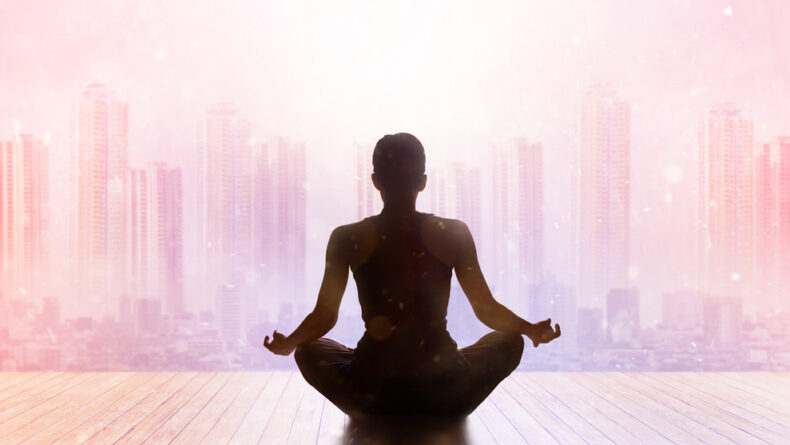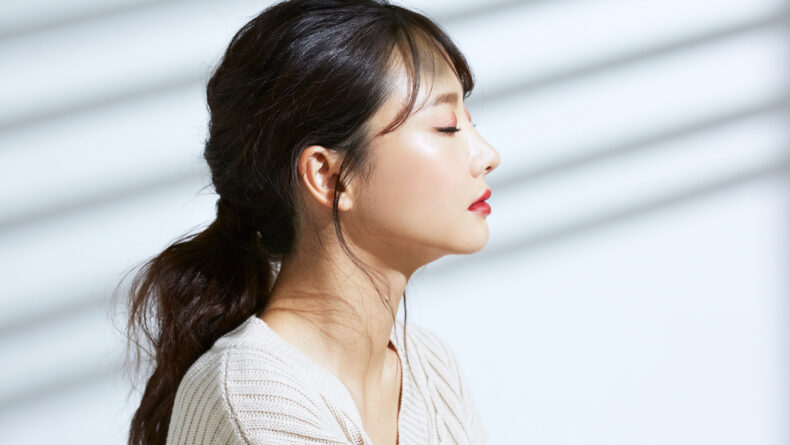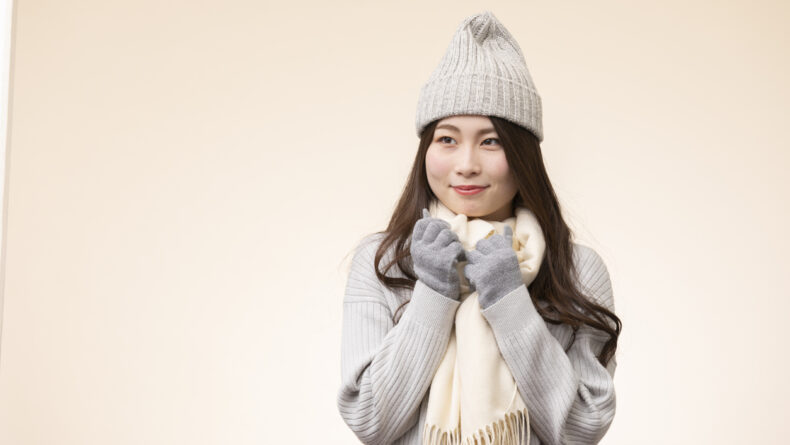5 Tips For a Heavenly Night’s Sleep in Japan
Simple sleep tips and Japan-based remedies
Many who live the busy Tokyo lifestyle can readily identify with the long commutes, extended work hours, daily stress and the struggle to find some work-life balance within 24 short hours. We go to bed exhausted and eventually drift off, but is the rest we’re getting actually doing us any good?
A good night’s sleep is vital for achieving emotional balance, regaining strength, keeping your weight in check and basically feeling healthy. The average person will spend approximately one-third of her life sleeping, but experts agree that it is not quantity that matters, but quality. Below are some simple sleep tips and Japan-based remedies to help you get the most out of your shut-eye so you can wake up looking forward to the day.
Use Relaxing Scents
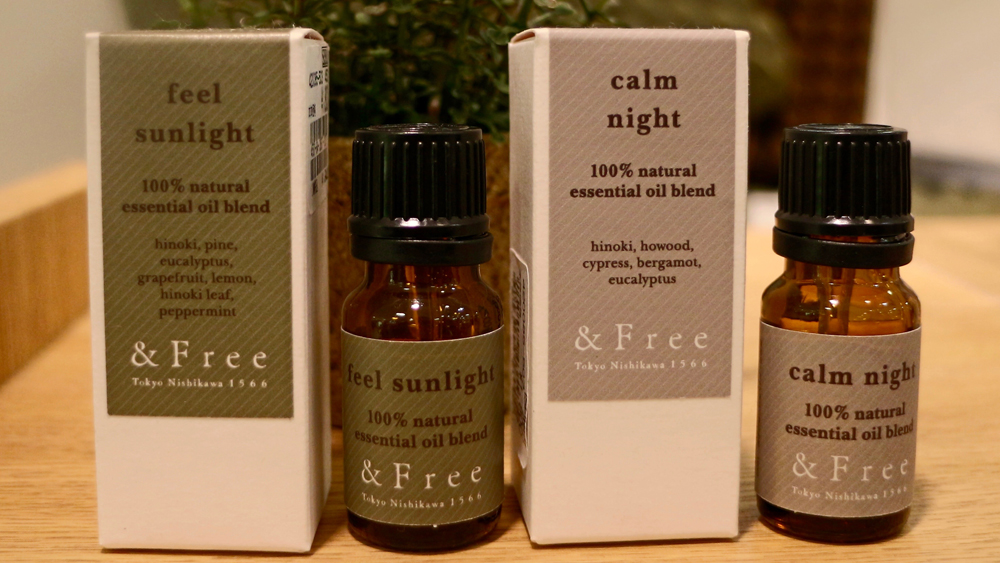
Aromatherapy is one of the oldest practiced methods to improve quality of sleep. Studies have shown that certain scents—such as lavender, chamomile, bergamot, jasmine, orange and rose—activate our parasympathetic nervous system and create a sense of harmony and relaxation.
Japan has a vast array of scented essential oils, sprays and body creams that can all be used for the purposes of good sleep. Apply a few drops of your favorite scent on a cotton sheet, handkerchief or lightly spray your pillow and sheets prior to bedtime. A good item to start with is Sleeping Beauty Roll-on Aroma (¥810) from Gaia Np, found at Loft and other similar stores. It’s a portable roll stick available in three different fragrance blends: happiness (rose), energy (peppermint) and healing (lavender). Apply to your neck or wrist right before bed.
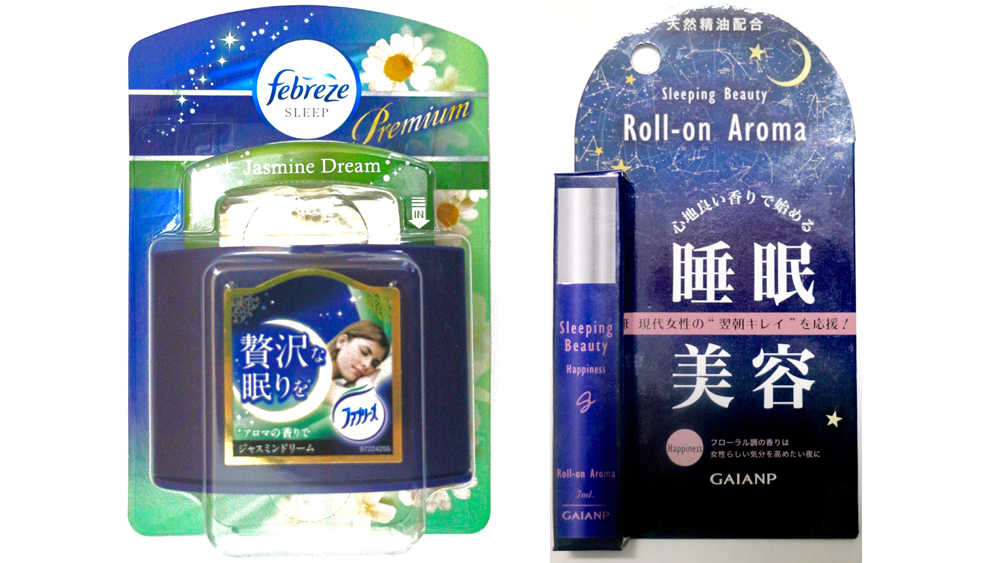
For good room scents at reasonable prices, try Febreze’s Sleep Scent series (¥483) or & Free’s 100 percent natural essential oil blends (¥1,944) and linen sprays (¥1,620),which are also highly recommended if you’re looking for quality natural aromas. These original concoctions offer a rich blend of relaxing Western and Japanese scents, including hinoki (cypress) wood, bergamot, ho wood (from the camphor tree) and eucalyptus.
Play Easy Music
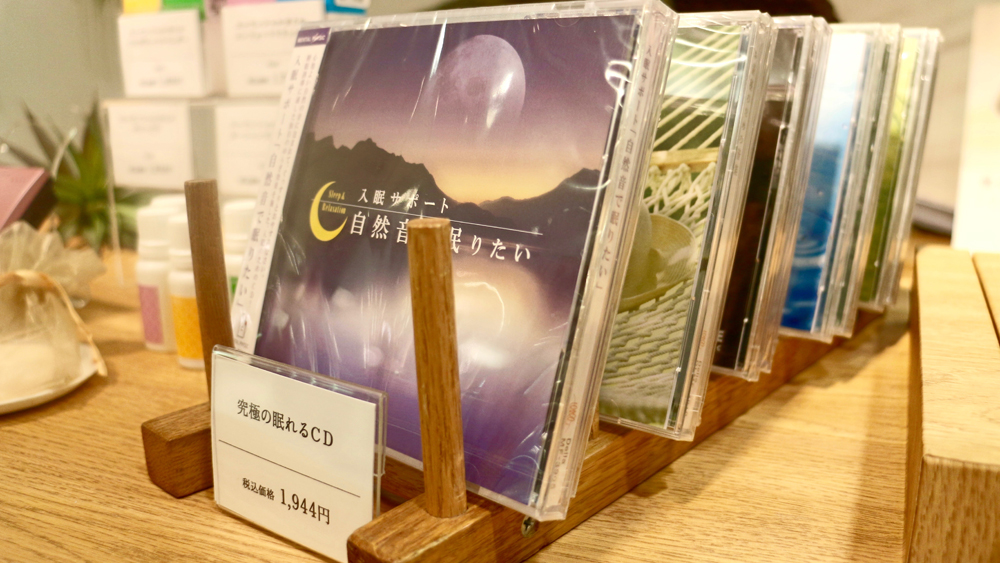
There is a reason we hum lullabies to children before bed. The slow-tempo sounds and nature-inspired melodies help the brain relax and doze away easily. A key point, according to Japan’s first—and only—sleep therapist, Miho Mihashi (author of Suimin Mesodo 100, or 100 Sleeping Methods, among others), is that the music should have no lyrics, since your brain will be awakened when assigning meaning to the words you hear. As with scents, choose sounds that remind your brain of nature: waves, forest, wind, birds, flowing river sounds and anything that can help take you away from the busy city into a relaxed atmosphere are all good for your sleep.

Japan has a vast range of relaxation music CDs for all purposes of mental detox, sold at music, book, bedding and department stores for around ¥1,500. But apps come in handy as well. Try iLB Soft’s Relax Melodies or Mikdroid’s multiple collections of nature sounds, both of which available for free in the Google Play and Apple App stores. Set your timer for 30 minutes as you get in bed, close your eyes, shut off the lights and listen to the sounds as you gradually drift off. The result will surprise you.
Warm Up Your Body
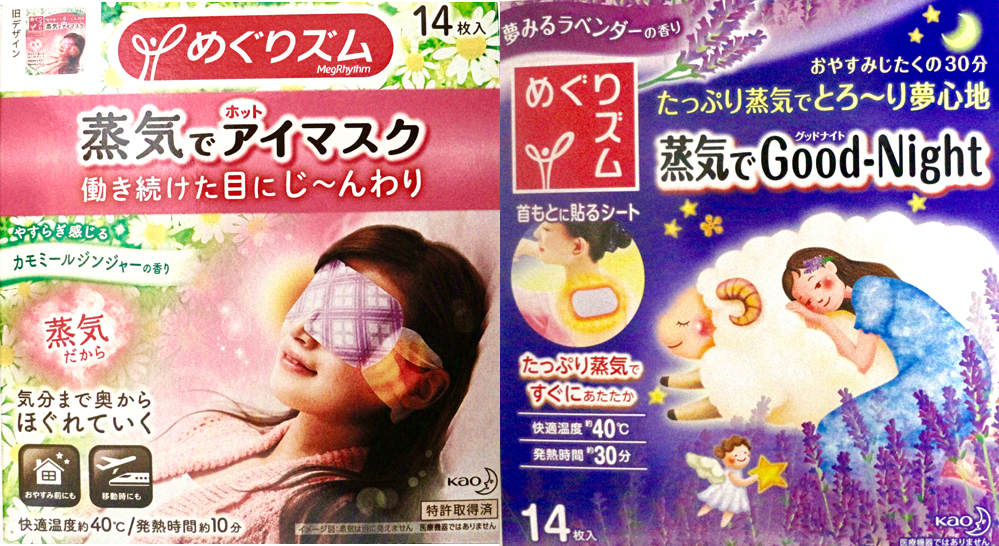
We start to feel sleepy when our body temperature drops, so one of the best ways to replicate this is to purposefully increase it first and then wait for approximately 30 minutes, by which time you should be ready to go to bed. Taking a nice warm bath about an hour before bedtime is best, but if your schedule prevents that luxury, several products can help you achieve similar outcomes.
Start with the Kao MegRhythm Steam Eye Mask (¥1,317 for a package of 14, available at drugstores), which will both relax your eye muscles and reduce sharp light. The mask has a patented self-warming heat cell that activates as soon as it’s exposed to air. It will warm up gradually to a comfortable 40 degrees Celsius and slowly expose the eyes to steam, relaxing them and thereby, your whole body. Apply to your eyes as you lay down in bed. The heat will last for approximately 10 minutes, after which the mask will begin to cool down. Even better, it comes in four scents known for their relaxation benefits: lavender, chamomile-ginger, fresh rose and the newly added yuzu (Japanese citrus). There is also an unscented type available.
Another great tool is yutanpo, the traditional Japanese hot water bottle. After adding hot water, simply put it in your bed approximately 15 minutes before falling asleep. It will provide a comfortable sleeping environment and as it gradually cools down, you will have long fallen asleep. Last, though certainly not least on this list, is another product from Kao—the neck-warming MegRhythm Steam Sheets (¥1,317 for a pack of 14, available at drugstores). Apply one sheet to your neck area 30 minutes before going to bed for a pleasant warming up of your whole back. The heat will gradually succumb as you fall asleep, so you don’t need to worry about removing it—you can do this in the morning after you wake up from blissful night’s sleep.
Invest in Quality Bedding
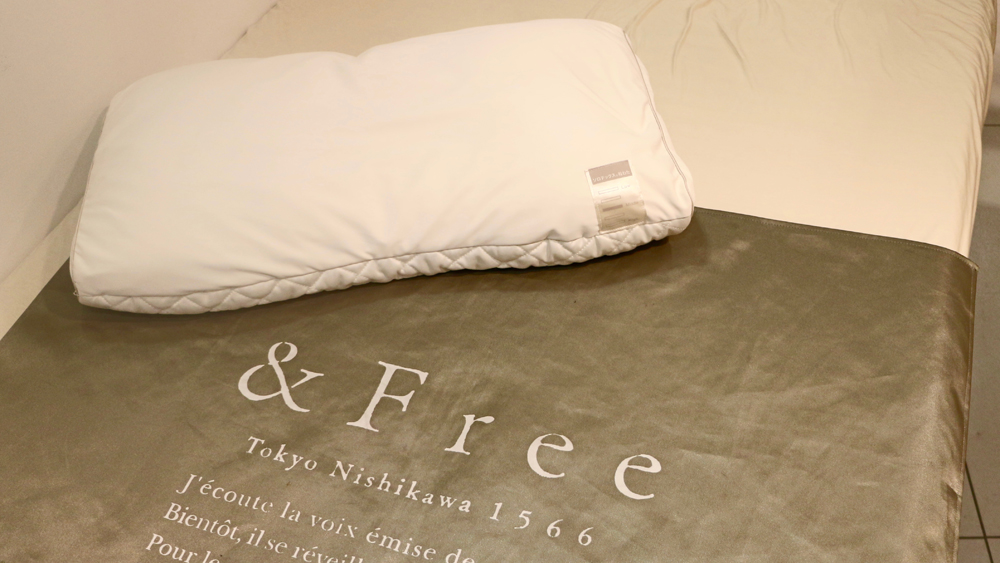
If you’re serious about sleep, then don’t scrimp when it comes to bedding. Poor choices here mean you may end up spending a lot more on healthcare later on. Choose a mattress or futon that supports your body in the same position as when you are awake. The right pillow can help you avoid headaches, shoulder stiffness and neck pain—in addition to preventing neck wrinkles and snoring. After continuously failing at choosing the proper headrest for myself, I turned to & Free, a specialized pillow, mattress and sleep goods brand owned by Tokyo Nishikawa, a top Japanese sleep products manufacturer. The staff at & Free are all friendly, experienced professionals who have undergone the company’s “sleep adviser” license training and are there to help customers choose pillows to best fit their body shapes.
The custom-made order starts with choosing the pillow’s inner material—a selection of six choices (soft sponge, cotton, puff cutouts, semi-soft pipes, hard pipes and buckwheat husk) are available to suit the customer’s preferences. The next step is measuring the shape of your head and back by using an object called the “press shaper.” This process, taking no more than ten seconds, will determine the best height for your future pillow: low, medium or high.
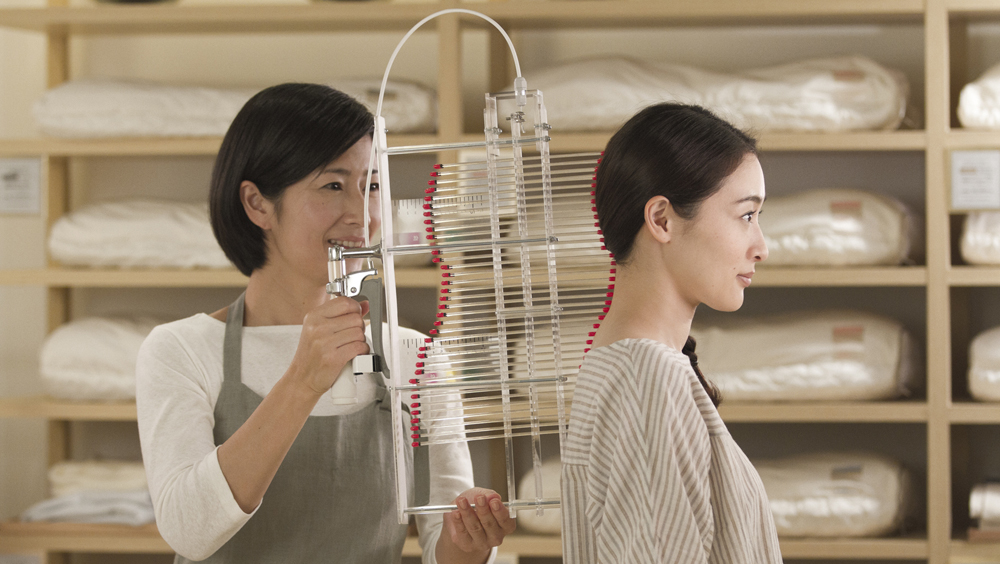
Following that, you are led into a semi-private space and invited to lay down in your regular sleeping position while the staff adjust the pillow’s height to perfectly fit your head. It’s important that there is no empty space between the pillow and neck, says Mai Terashima, a Tokyo Nishikawa employee, so that you don’t end up bending the neck upwards or downwards, both of which can lead to a series of negative effects on our sleep and body condition. The step-by-step adjustment is done in a total of 14 places, including the left and right side of the pillow to assure natural position even when you switch positions while sleeping.
Once everything is done, you’ll be asked to wait for a few minutes until your pillow is nicely packed and ready to be taken home. The whole process takes no longer than an hour. My personal feeling as I was trying the custom-made pillow was a sense of pure relief and relaxation. I suddenly realized that up until now I had always subconsciously geared up my muscles to try to fit in my pillow, a thing that over the years had led to constant headaches and neck pain. But with the & Free pillow there was nothing of the sort: my body was naturally resting and the pillow was supporting me, not vice versa, as it should be. The cost is ¥27,000—not cheap, but a good investment if you think about future sleep quality. Included in the price is a year of free adjustment of the pillow. The company has 66 stores across Japan, and don’t worry if your Japanese isn’t perfect either—those located in large department stores have interpreters available. Visit the website (Japanese only) for the full list of shops.
Choose the Right Foods Before Bed
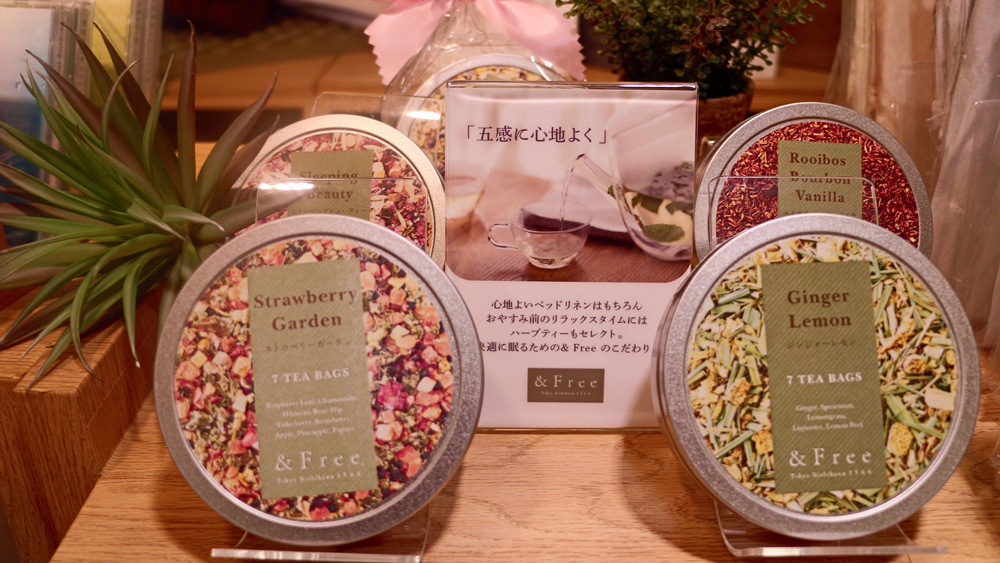
Naturally, the food and drink we consume have an enormous impact on the quality of our sleep. No news here, the golden rule regarding food is to avoid consuming anything at least two hours prior to going to bed, and keep away from any foods that may make you feel heavy and full—oily meat, cheese and sweets, for example. Consuming any food directly before going to bed is likely to make your sleep unsound because your body is wide awake trying to digest all you have eaten. Alcohol, nicotine and caffeine (and that includes chocolate, black and green tea, and cola) should be avoided as well, at least a few hours before going to bed.
What food actually helps us sleep better, though? Rice comes first, which may explain why Japanese people can be found easily dozing off at any given time and place. Rice is rich in melatonin, a hormone that helps control our sleep and wake cycle and is also easily digested. Liver, rich in vitamin B12 (a multi-functioning vitamin also used to treat sleep disorders) as well as milk, seaweed and fish (all rich in calcium) have a soothing and relaxing effect as well, and are also recommended. Finally, a non-caffeine herbal tea, a blend of chamomile, rosehip and other natural extracts may well be the perfect way to end your day relaxed, refreshed and ready for dreamland.
At the end of the day, don’t forget to put everything that bothers you out of your mind. Though easier said than done, gaining a good quality sleep means that we just need to force ourselves to forget about things that we can deal with in the morning, with a fresh, new day. To quote the famous Irish proverb, “A good laugh and a long sleep are the best cures in the doctor’s book.”
Do you have any sleep tips for those of us who live in Japan?












